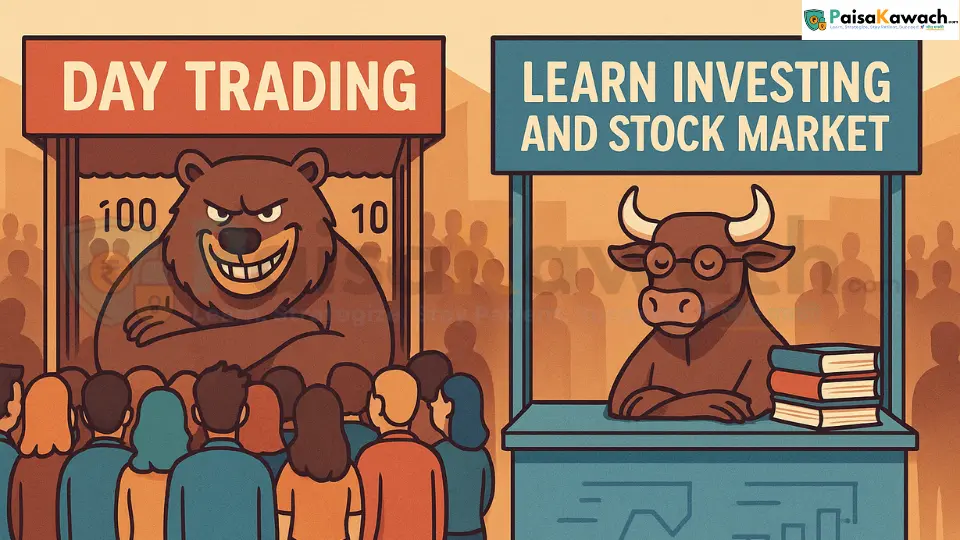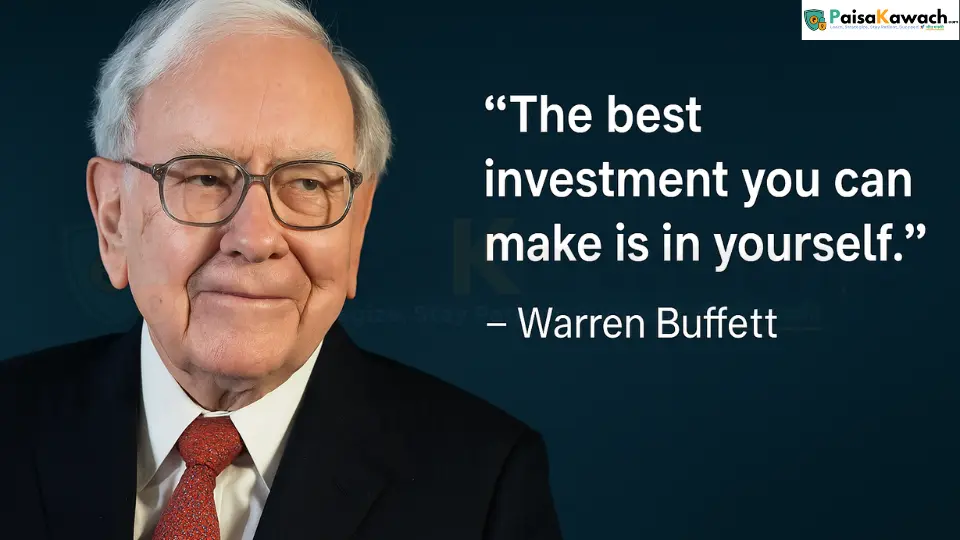By PaisaKawach Team | July 15, 2025

When most people first hear about the stock market, their eyes light up. "Buy low, sell high," they think. "I can double my money in a few months." Social media, flashy YouTube videos, and casual conversations reinforce this idea that the market is a fast track to wealth. But here's the truth:
This article is a wake-up call for anyone dreaming of easy money in the market. Before you dive in, let’s break down the biggest myths, the hidden emotional traps, and the path to truly mastering investing.
From influencer posts bragging about 100% returns to apps that let you trade in seconds, everything about today’s environment makes stock investing look effortless. But that illusion is deadly. What you don’t see are the silent losses behind the scenes — the 90% who give up, go into debt, or worse.
According to a 2024 study by CNBC, retail investors collectively lost over $10 billion chasing meme stocks and high-risk options. Most of them had no foundational knowledge or risk management strategy.
Many people don’t just lose money — they lose peace of mind, confidence, and in tragic cases, even their mental stability. The market is emotionally brutal for those who enter it without preparation.
Financial mistakes can compound into personal, emotional, and family crises — especially when the investing journey begins with greed or ego.
One of the most common but underestimated traps is overconfidence. After a few lucky trades, beginners begin to believe they’ve cracked the code. But this illusion of skill is dangerous. The less experience someone has, the more they overestimate their knowledge — a phenomenon known as the Dunning-Kruger effect. This leads to risky bets, poor decision-making, and heavy losses.
Scrolling through Twitter or Reddit, it's easy to feel left behind. Everyone seems to be getting rich overnight. But what you're seeing is the highlight reel, not the whole story. Most people don't post their losses — only their wins. This fuels anxiety and FOMO (fear of missing out), pushing you to act on emotion instead of strategy.
FOMO is one of the biggest psychological drivers of poor trades. It clouds judgment and encourages late entries into already-overheated stocks. Instead of chasing the market, successful investors focus on probabilities, valuation, and patience — not trends.
Great investors are not gamblers. They are students of economics, psychology, business, and human behavior. They study patterns. They read annual reports. They make fewer decisions — but better ones. And most importantly, they play the long game.
If you're serious about building wealth through investing, start with education. Learn the basics of:
Before risking real money, practice with a simulated trading account or paper portfolio. Many platforms allow you to test your strategy with virtual money. You’ll get to observe market behavior, test your discipline, and make mistakes without any financial consequence.
Forget quick flips. The real value is in compounding — where your investments grow slowly but consistently. As Warren Buffett says, “The stock market is a device for transferring money from the impatient to the patient.”
You don’t have to be a financial genius to succeed in investing. But you do need to respect the process, build your knowledge brick by brick, and stay grounded. Once you truly understand how markets work and how to think like an investor, you become inevitable — someone who cannot be shaken by trends, tips, or temporary losses.
This isn’t a race. It’s a life skill. Learn it right, and the stock market won’t be your downfall — it will be your partner in building lasting wealth.
 Warren Buffett’s Top Investment Principles (and How to Apply Them in Real Life)
Next →
Warren Buffett’s Top Investment Principles (and How to Apply Them in Real Life)
Next →
 What to Do When Rent Increases but Your Salary Doesn’t: Smart Survival Guide for 2025
What to Do When Rent Increases but Your Salary Doesn’t: Smart Survival Guide for 2025
No comments yet. Be the first to comment!